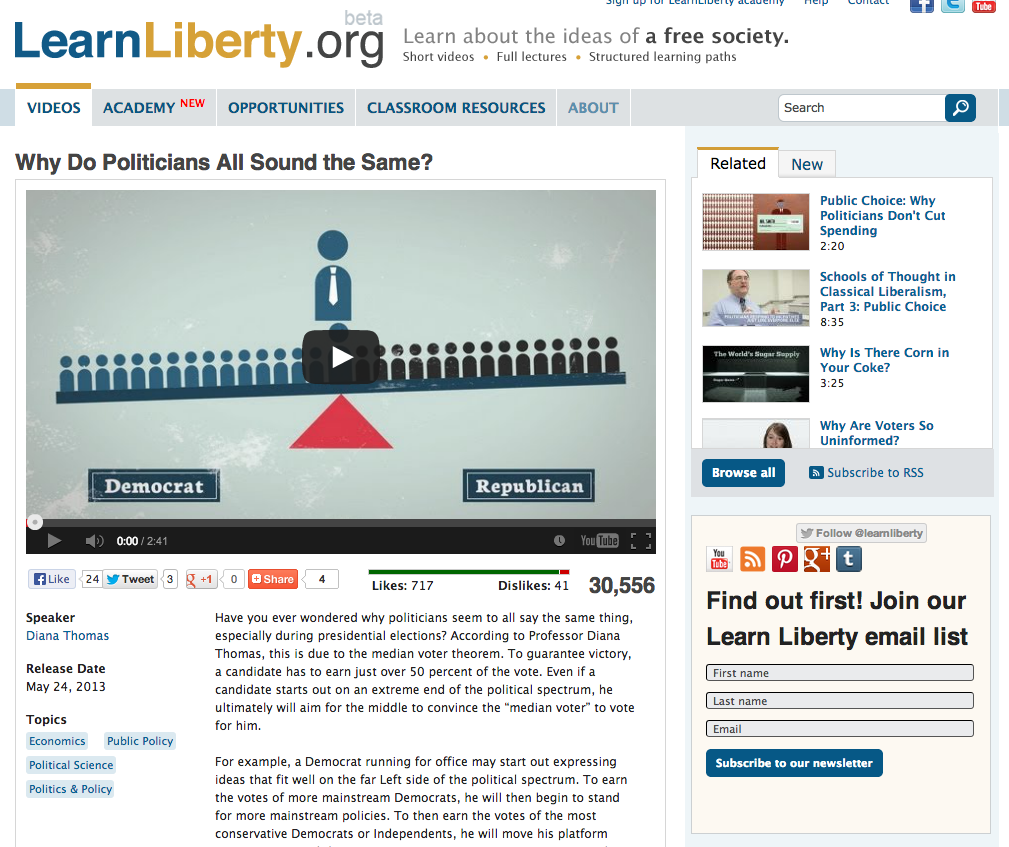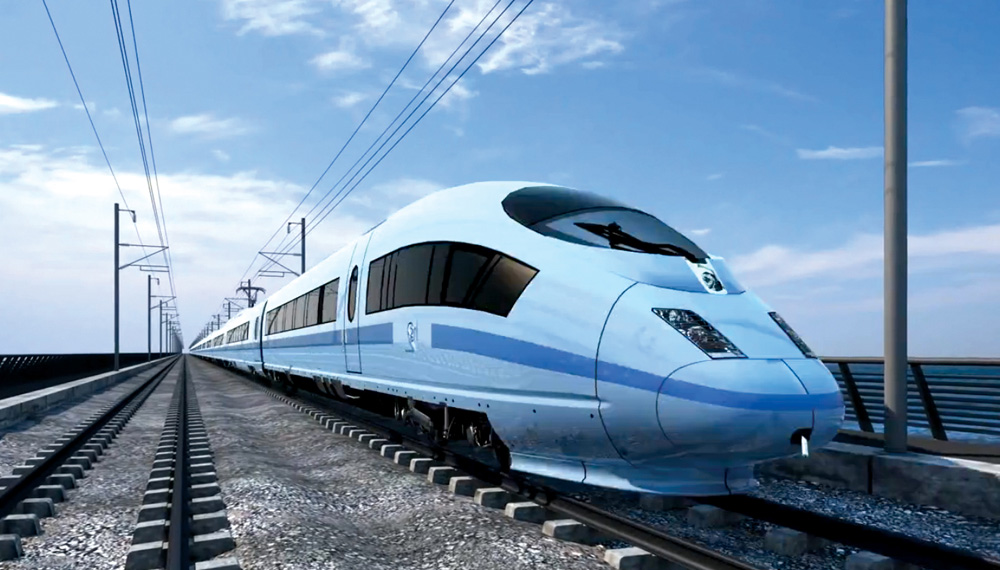Via LearnLiberty, In a two-party, majority rule system, moving toward the center is not likely to alienate the voters on the ends because they feel there is not another viable candidate to vote for instead. This means, there really isn’t any penalty for a candidate chooses to move toward the […]
Read MorePost Tagged with: "Public Choice"
HS2 – a study in why politicians make bad choices
Yesterday, a number of us voted against the preparatory bill for High Speed 2. I remain opposed for the reasons I have given. As if the economic case were not weak enough already, yesterday another £10 billion was added to the cost: Patrick McLoughlin said that the projected cost has […]
Read MoreThe Government vs the State
ConservativeHome reports that the Government (the ministers) are scaling up their battle against the civil service: Outside of Manchester, the most significant political speech of the day is being delivered by Francis Maude to the Institute for Government. Indeed, it could actually be more significant than “the most personal speech ever […]
Read MoreHow crony capitalism happens – public choice theory
It’s common for politicians and officials to discuss “market failure” before setting out how the government will correct those failures. However, government fails too and with widespread, profound consequences for us all. Why? Dr Eamonn Butler’s Public Choice – A Primer explains how Public Choice Theory applies the methods of economics […]
Read MoreMore unexpected borrowing?
Yesterday, we learned “public sector net borrowing was £0.6 billion in July 2012; this is £3.4 billion higher net borrowing than in July 2011, when net borrowing was -£2.8 billion (a repayment)”. Compared to say May, when we borrowed £17.9 billion, £600 million seems relatively modest. It’s still the gross […]
Read MoreWho Exploits You More: Capitalists or Cronies?
Via Learn Liberty, Who Exploits You More: Capitalists or Cronies? See also this short book on how political decisions come to be made: Public Choice – a Primer by Dr Eamonn Butler. Or watch Yes, Minister.
Read MoreA vision for more accountable public services
The Government have released their Open Public Services 2012 document which focuses on decentralising power to ensure that public services are accountable to the people that use them rather than to centralised bureaucracies. Despite global economic woes, public demand for high-quality services has remained intense. This does not mean that […]
Read MoreThe truth is out about politics, politicians, officials and bureaucracies – the IEA publishes a primer on Public Choice Theory
With the fuel scare over the last week, we saw how a few people in power can shift peoples’ expectations radically and drive them in large numbers to take the same actions. In technical if graceless terms, we have seen how big players shift economic expectations to produce herding. Of […]
Read MoreWhy HS2 doesn’t arouse the nation’s anger
Via the Adam Smith Institute, Why government doesn’t cut spending (even though it should) — a brief introduction to Public Choice Theory: Cutting tax and spending has concentrated costs and dispersed benefits but state spending has concentrated benefits and dispersed costs. That promotes growing state spending. It means that projects […]
Read More
